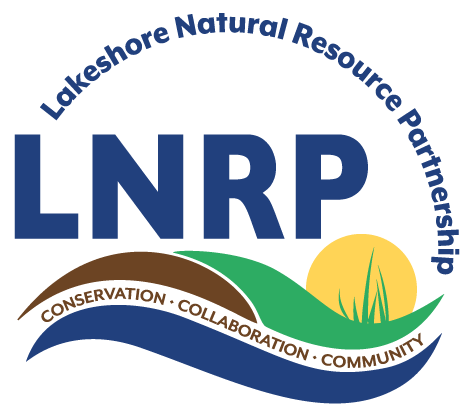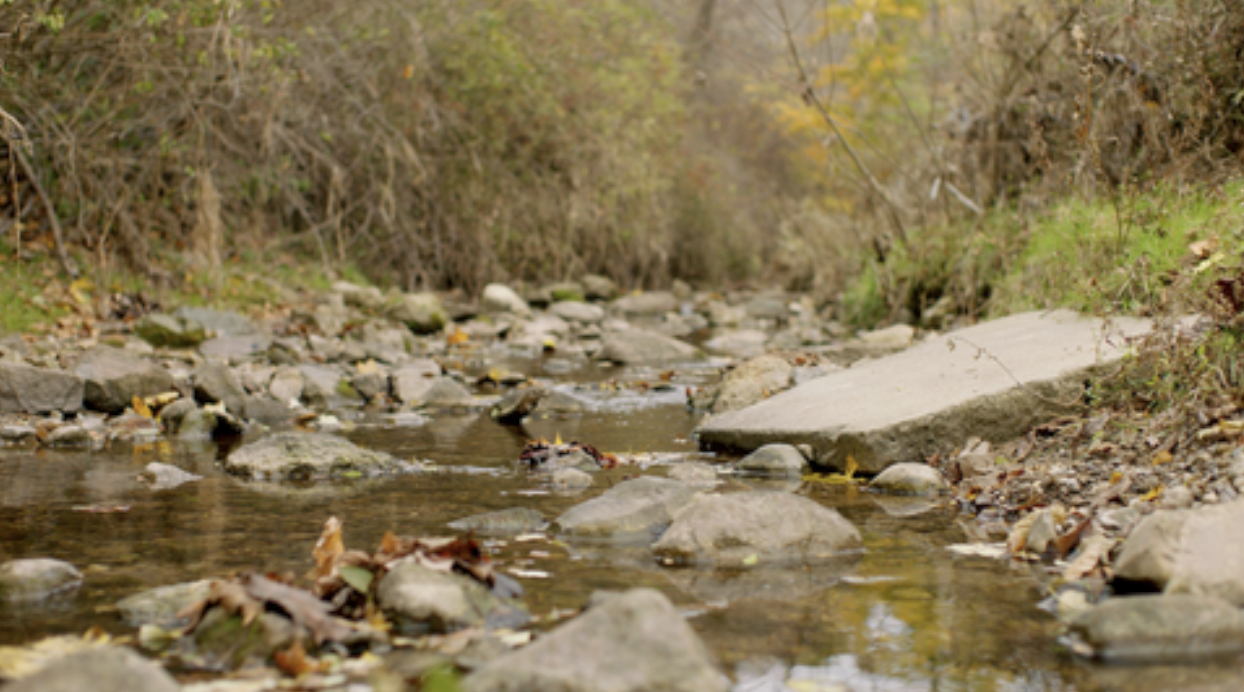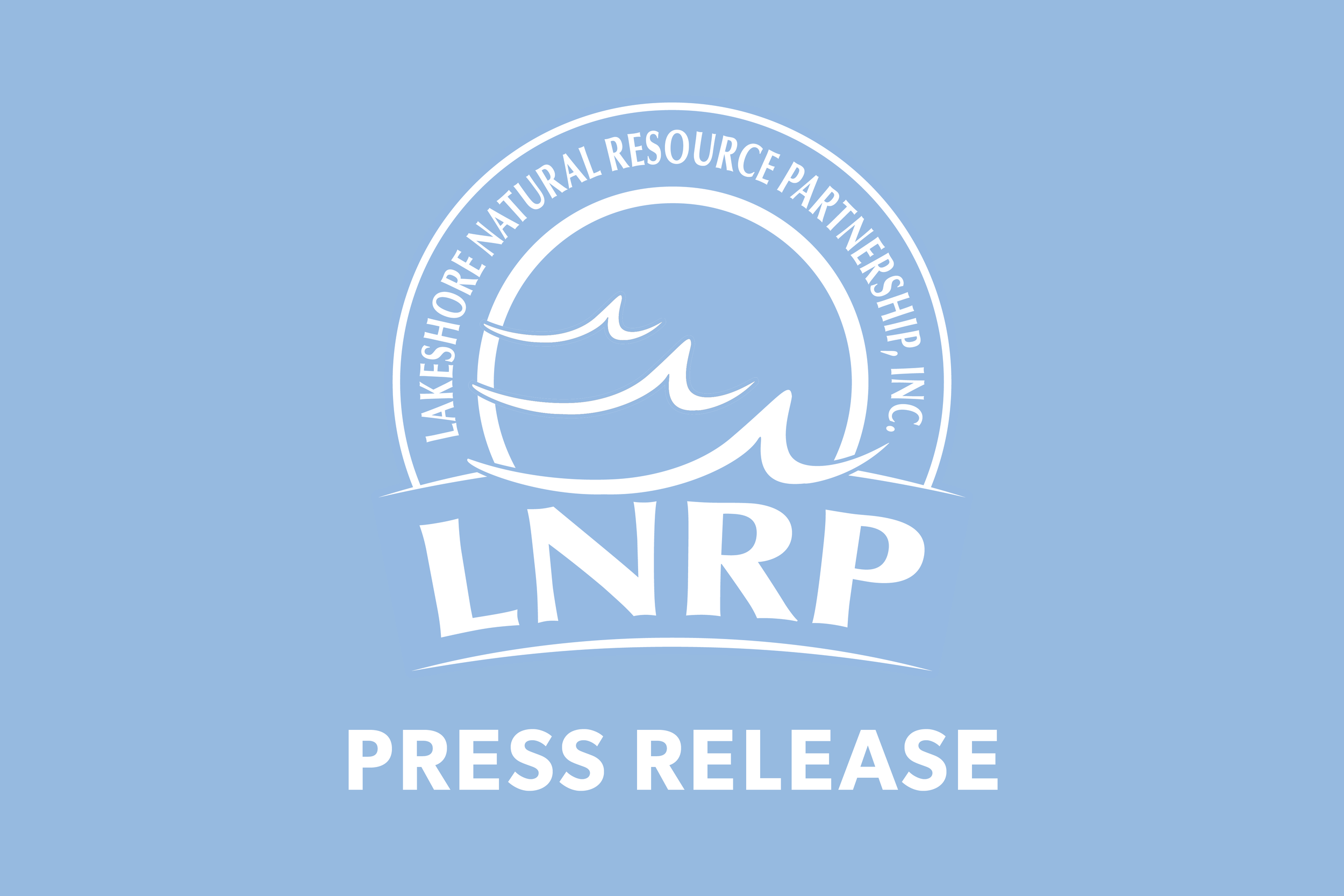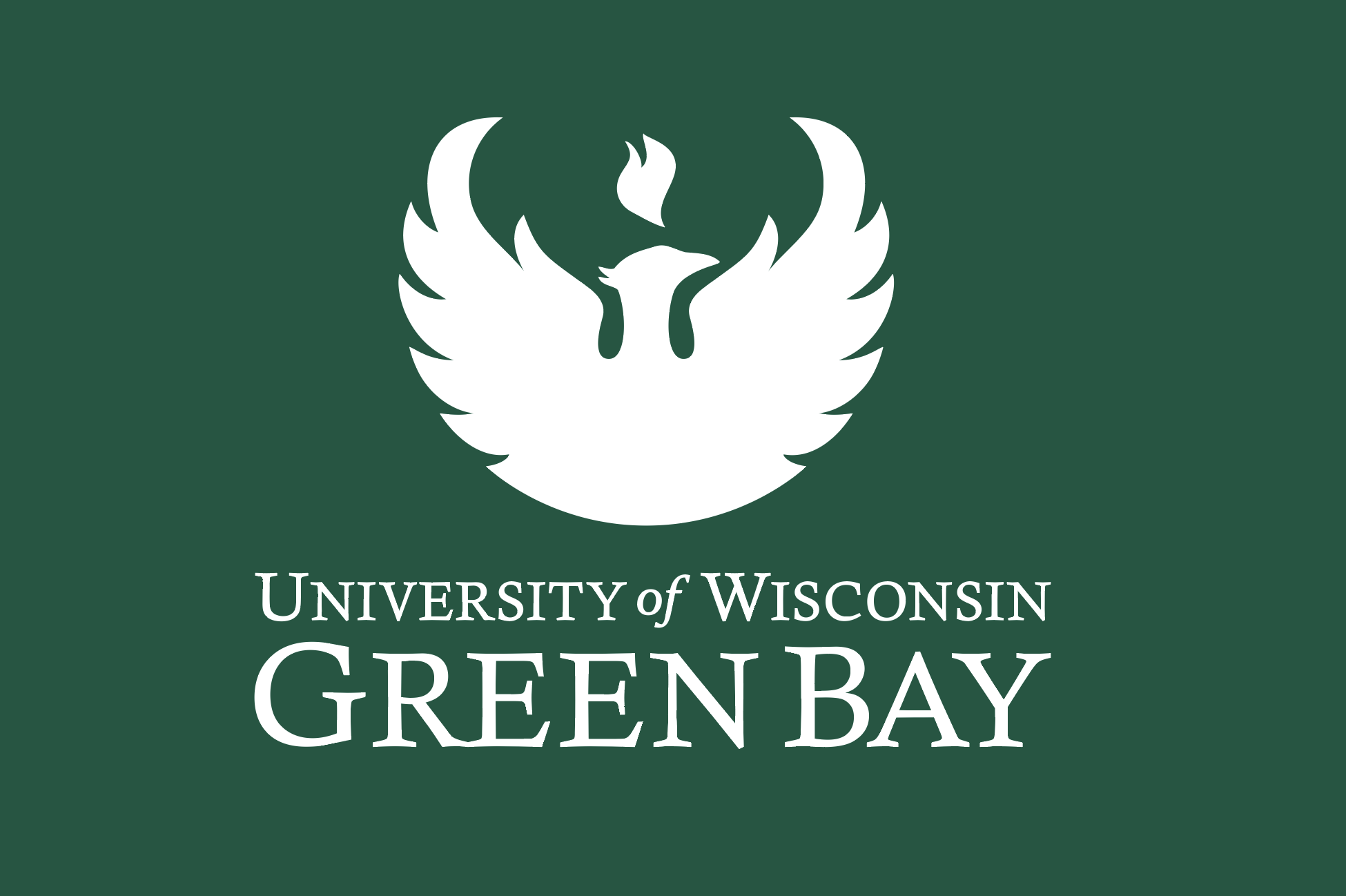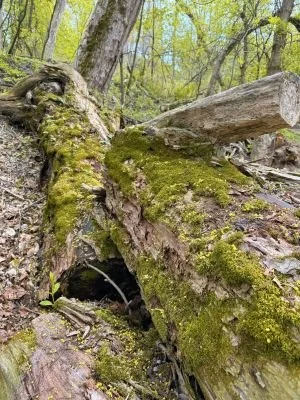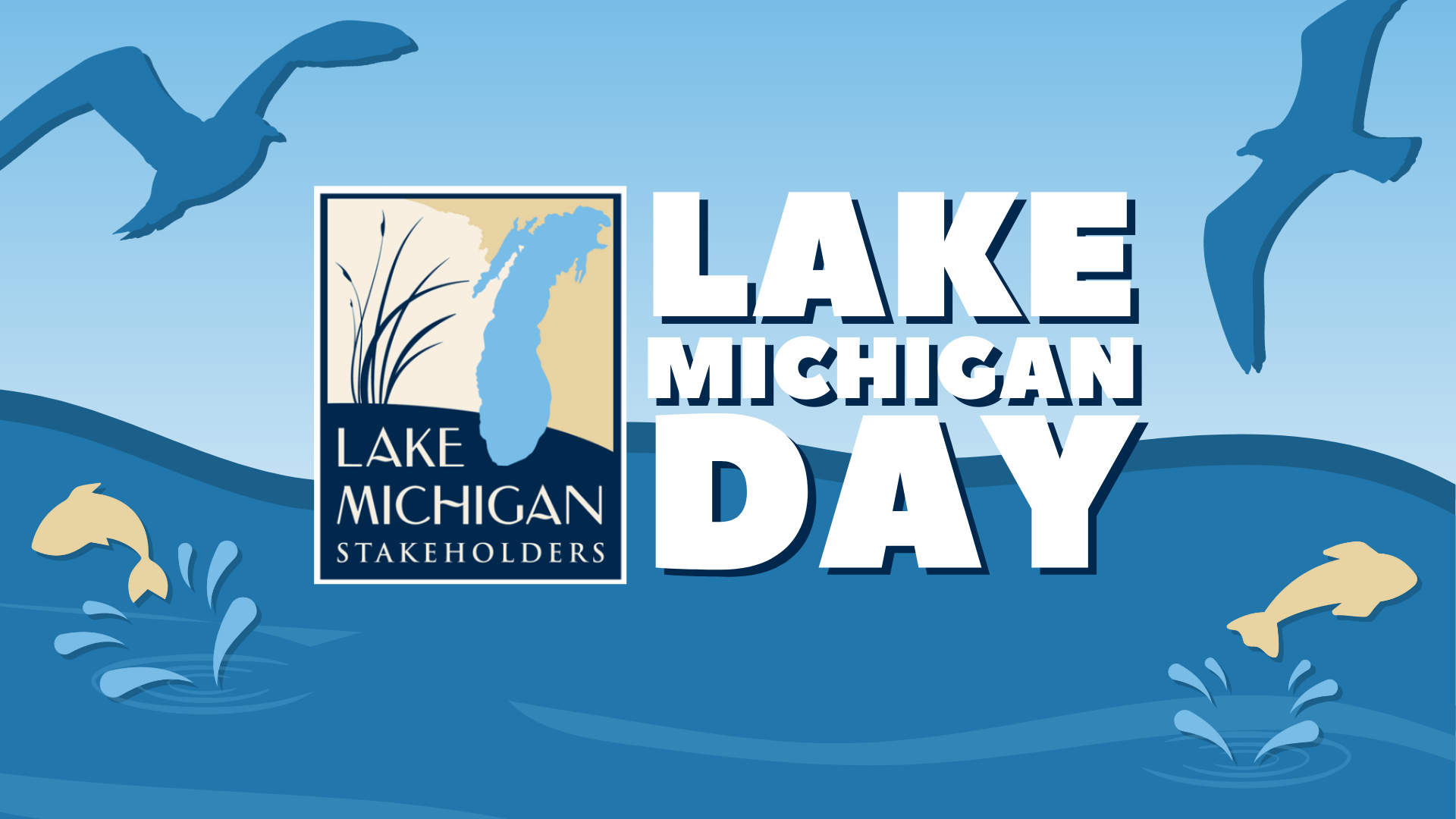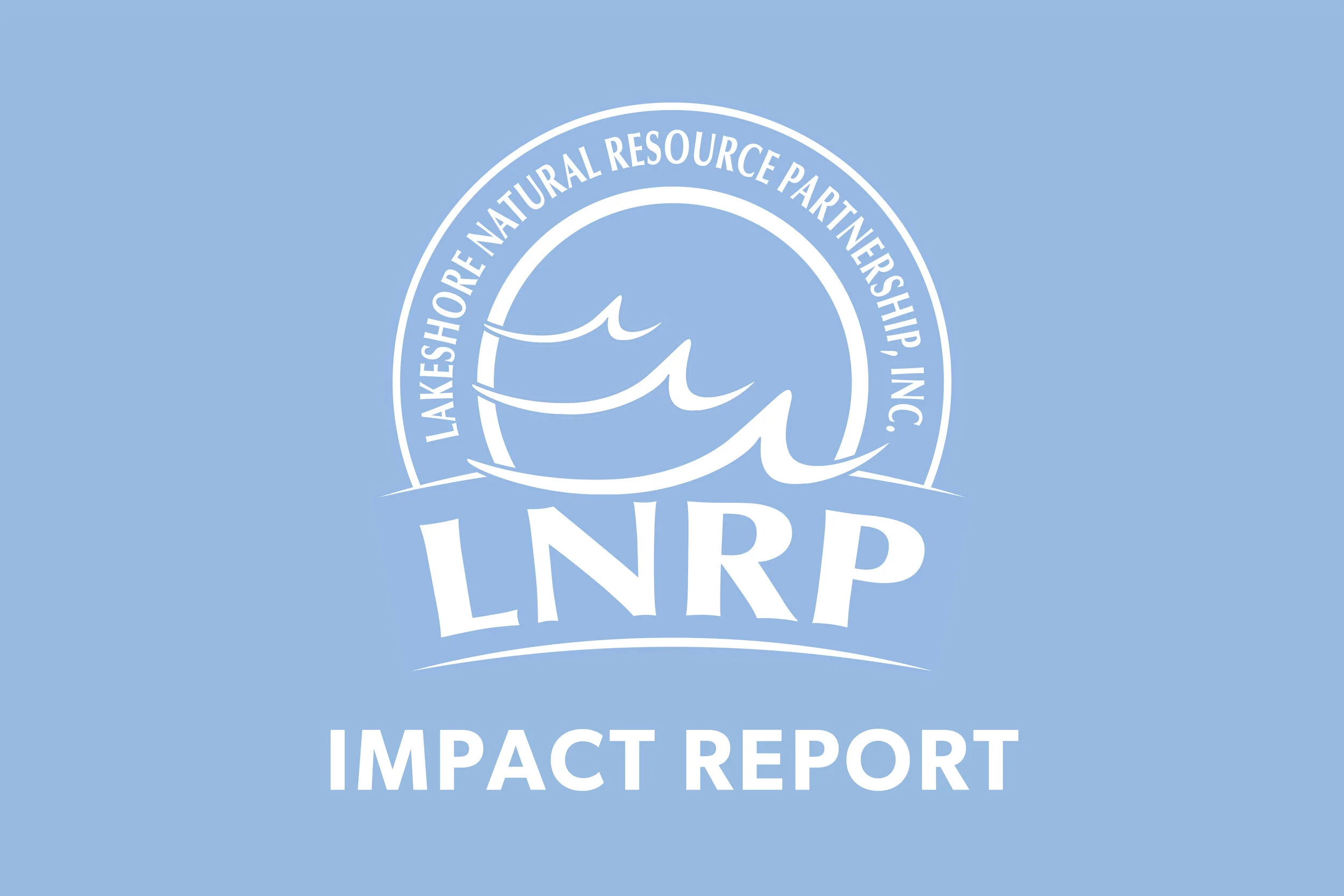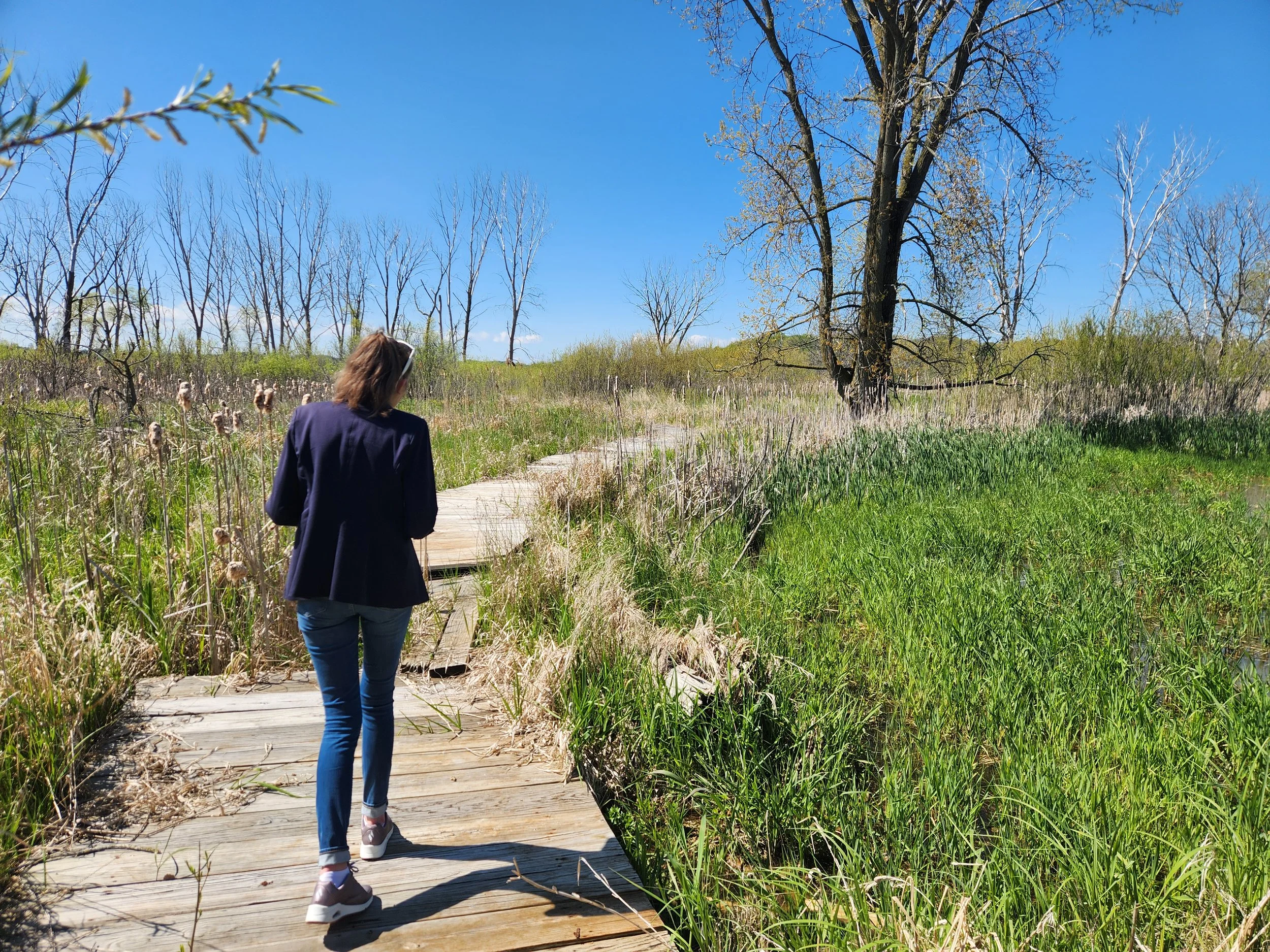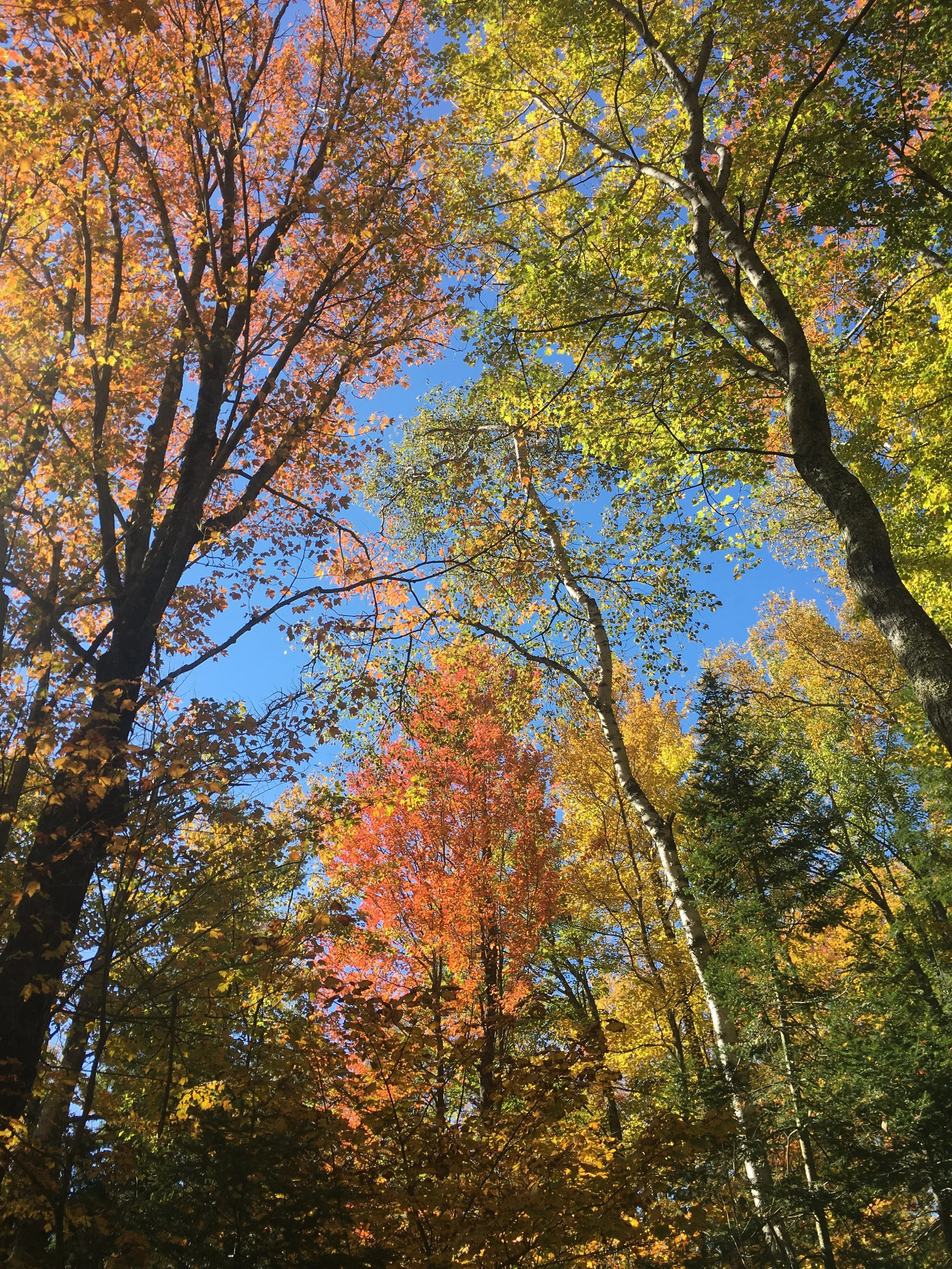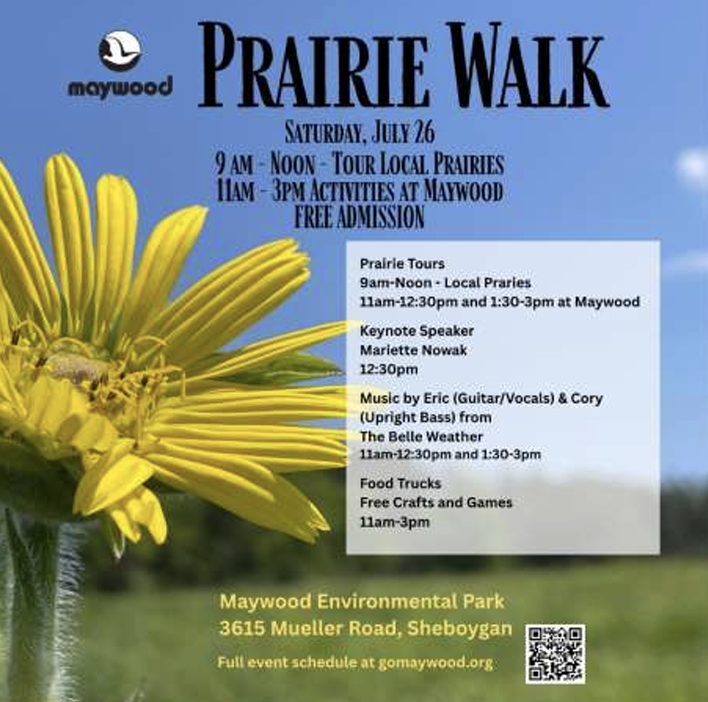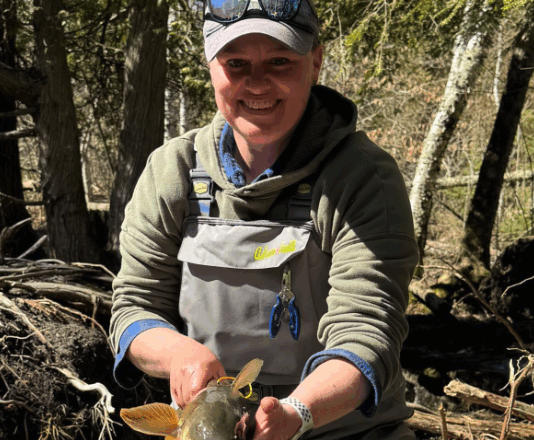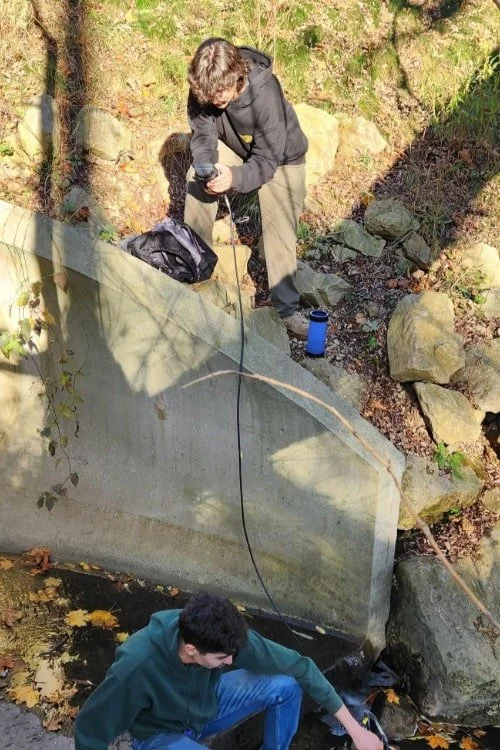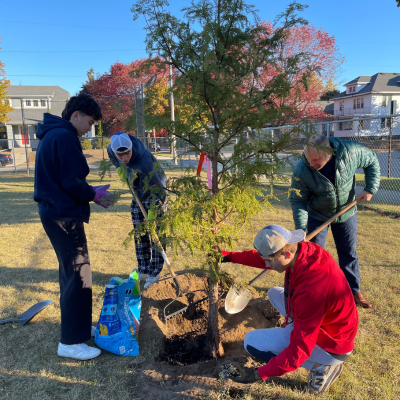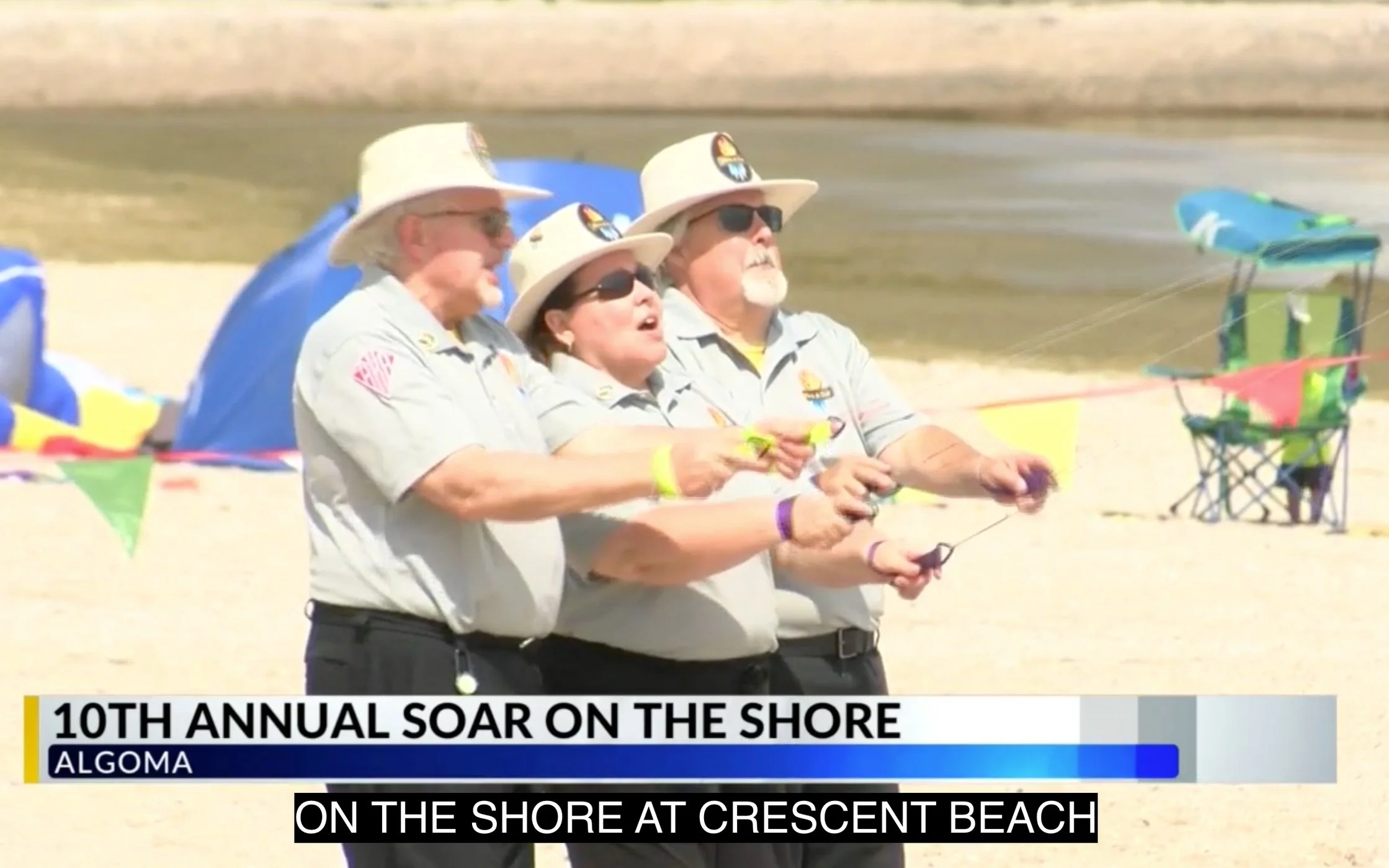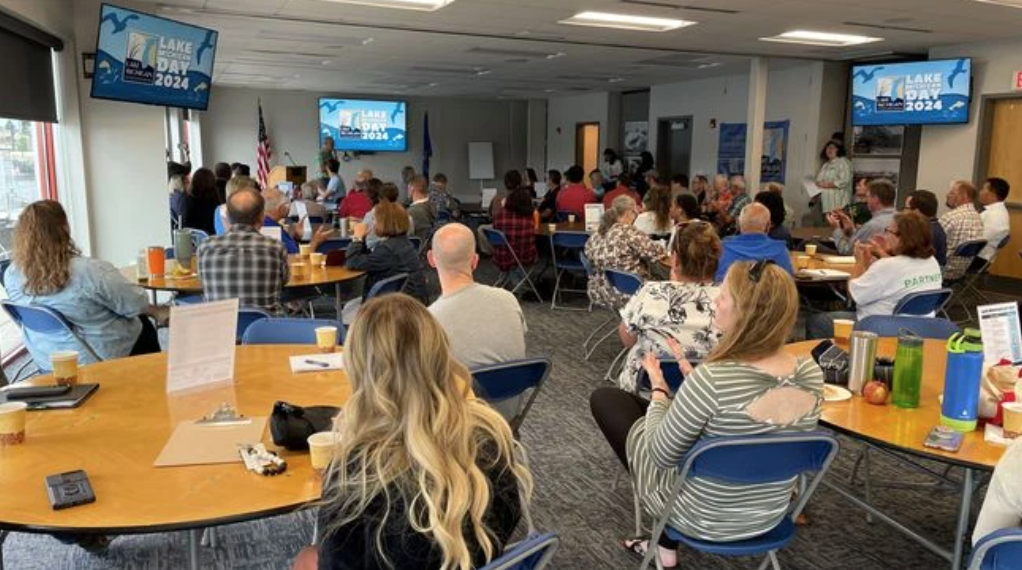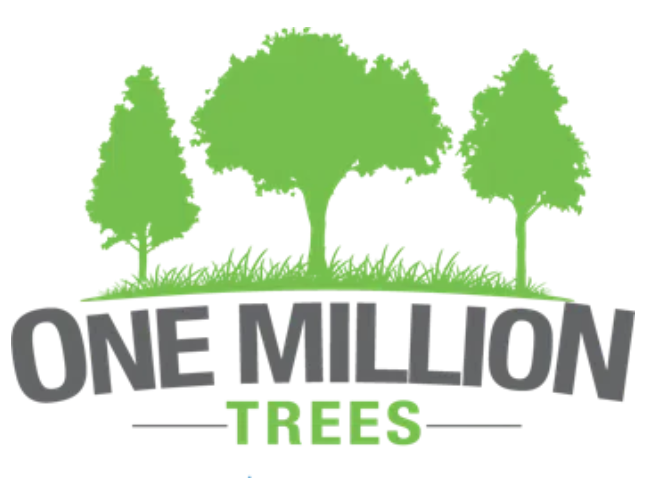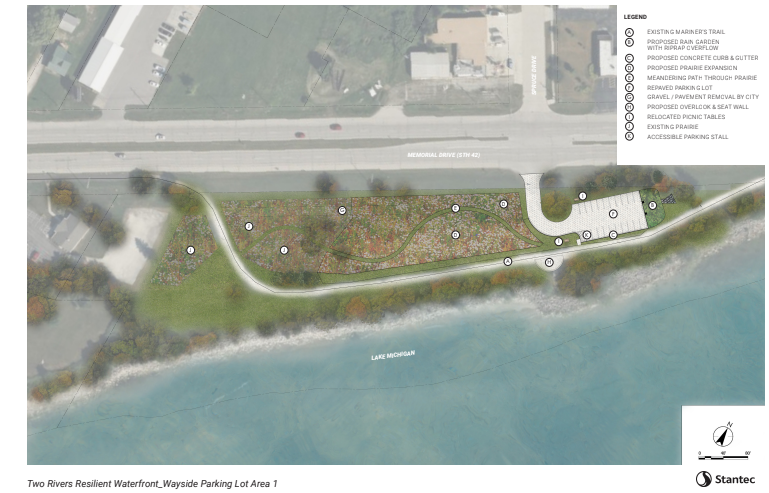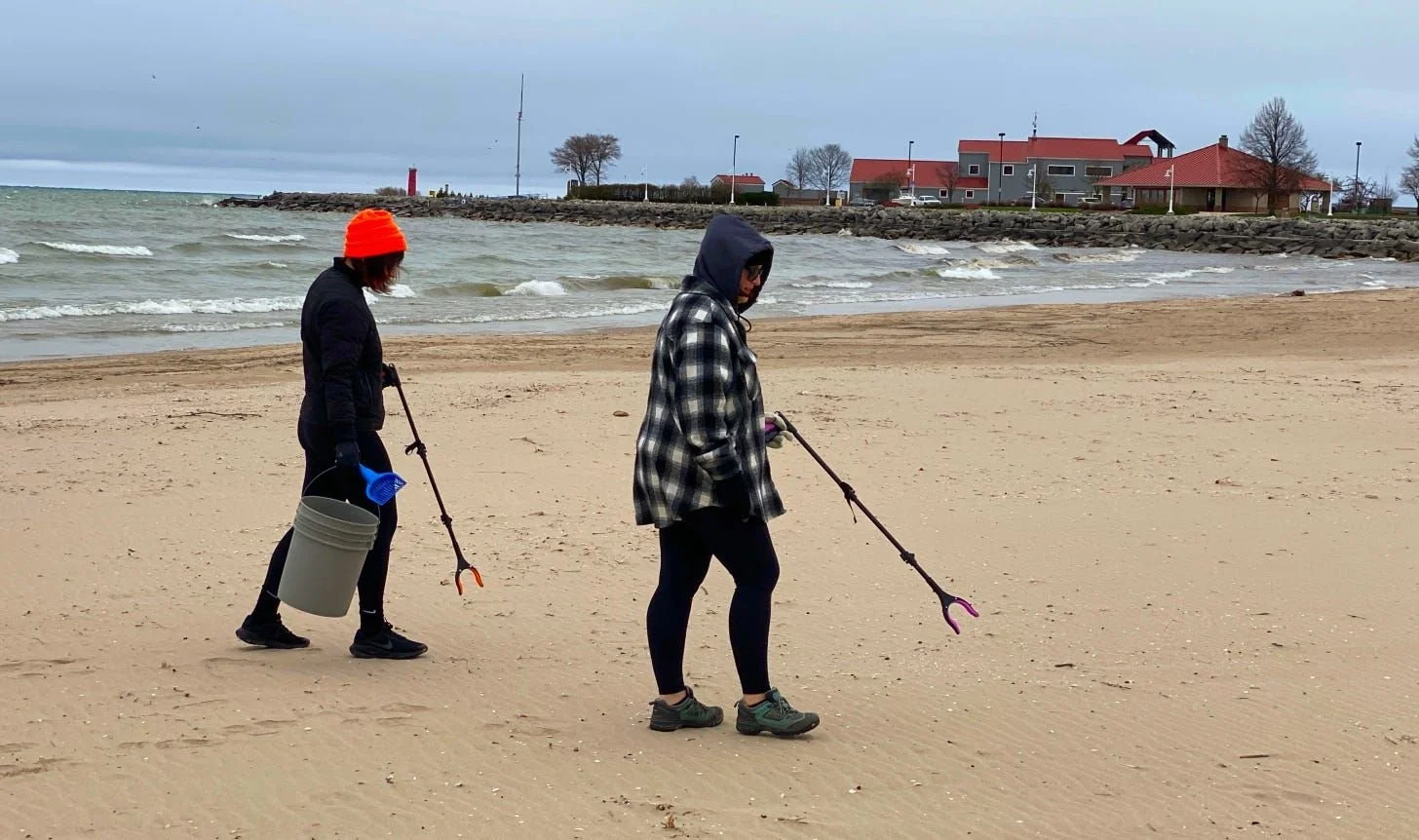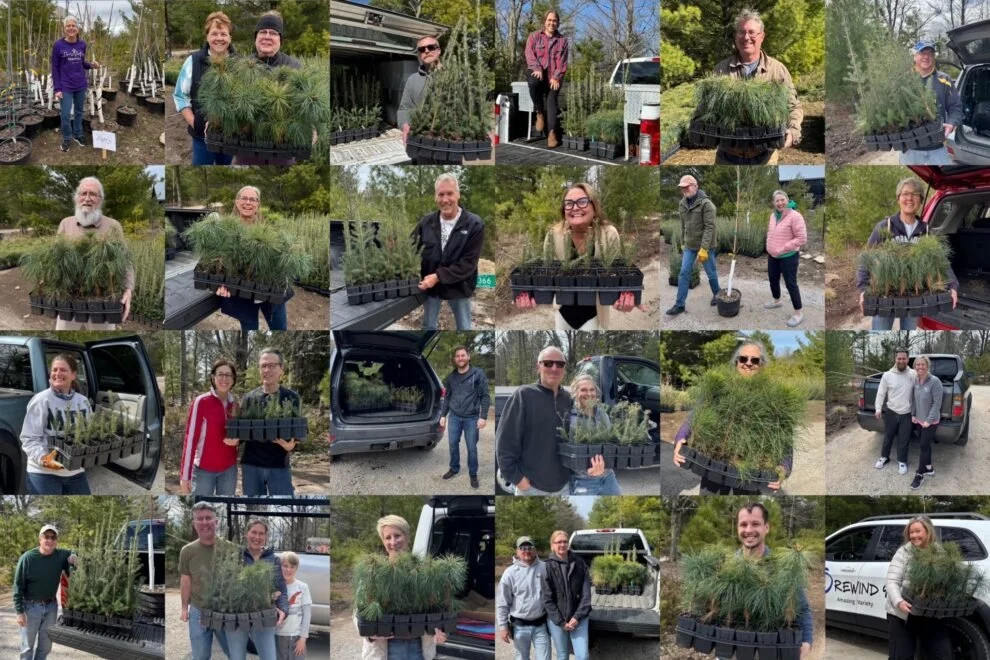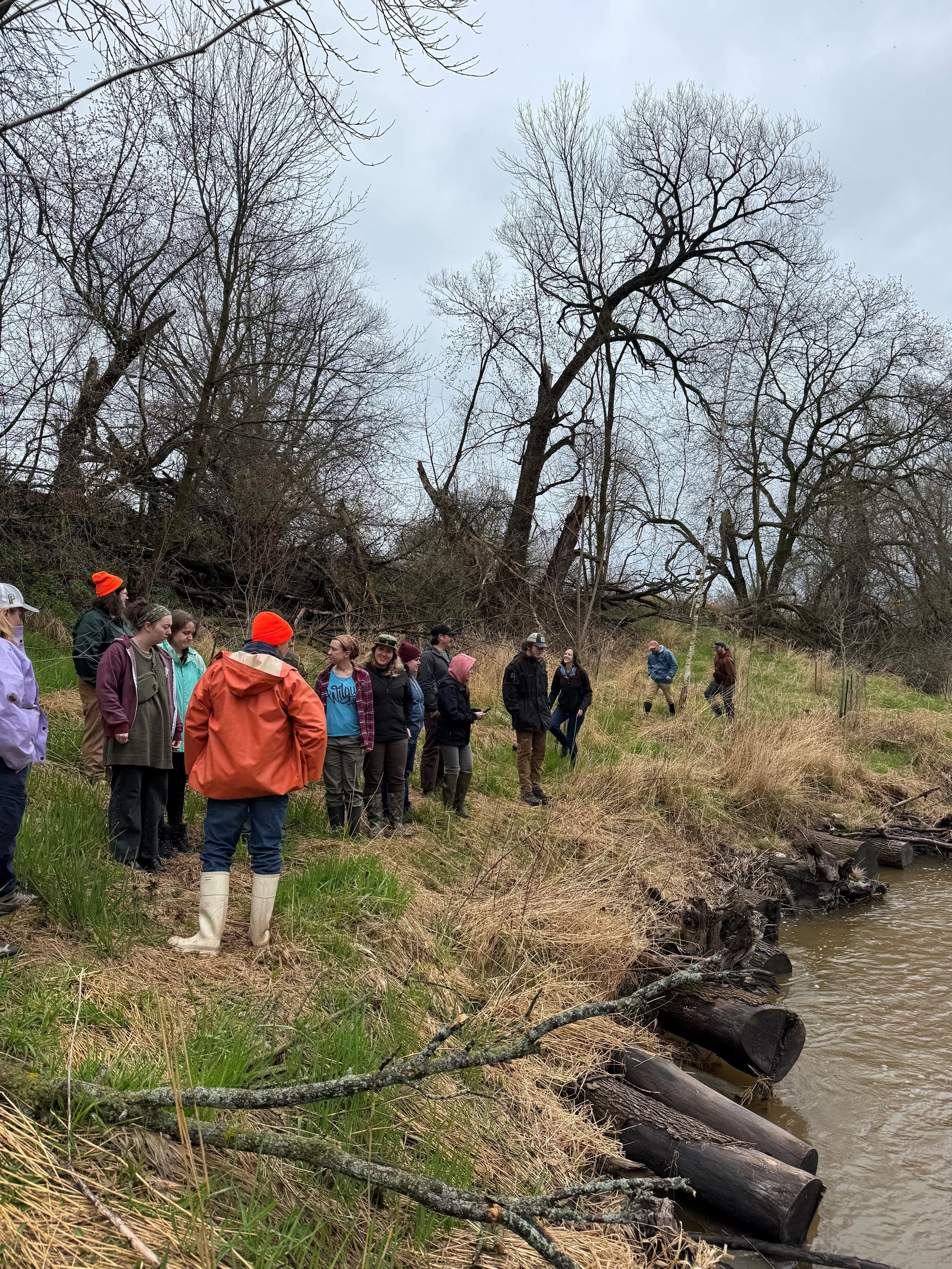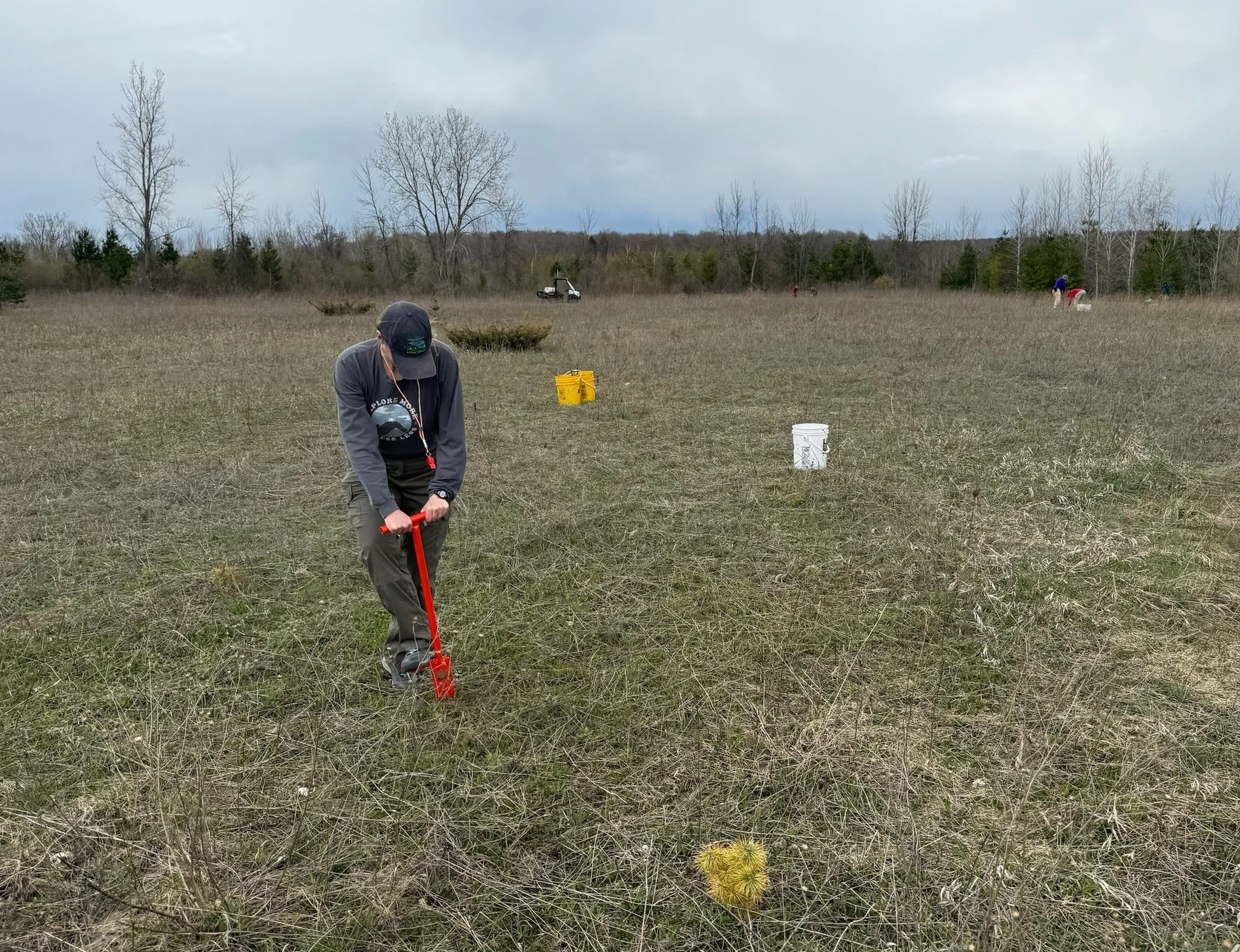
t h e l a t e s t
“Vantage Data Centers, which is developing the $15 billion Port Washington data center project, has pledged $3 million to an environmental project in the area. The Denver-based data center operations company yesterday announced the donation to the Valley Creek Corridor Revitalization Project in Port Washington, an effort of the local government and the Lakeshore Natural Resource Partnership.” – WIS Business
“Vantage Data Centers supports water revitalization in alignment with local priorities and sustainable commitments to Port Washington community.” – BUSINESS WIRE
“DENVER (Nov. 20, 2025) – Vantage Data Centers, a leading global provider of hyperscale data center campuses, today announced a $3 million funding commitment to support the watershed-scale Valley Creek Corridor Revitalization Project, a transformative environmental initiative in Port Washington, Wisconsin, managed by the Lakeshore Natural Resource Partnership (LNRP) and the City of Port Washington. With this investment, Vantage demonstrates its dedication to pursuing water positivity for the recently announced Lighthouse campus, a goal centered on replenishing more water to freshwater sources than the company uses.” – Vantage Data Centers
“You can have dinner with some living “legends”, with emphasis on the ledge part of that word, because it benefits the Wisconsin Ledge region. In this segment, our Retired Rambler explains what you can expect from attending the Living Ledge-nds: Driving our Missions Forward dinner, but also what else the event will offer, including games, raffles, and a special guest speaker, NFL Legend Harry Sydney. He also explains what the educational impact has been from showcasing the Niagara Escarpment since January 2021.” – WFRV
“The Sheboygan Rotary Club’s Restoration Of Our Trees Sheboygan (ROOTS) along with the Lakeshore Natural Resource Partnership in collaboration with the Sheboygan Area School District is continuing with Phase-III of the reforestation of District campuses this fall. The multi-year reforestation of twenty SASD campuses this year involves 30 large trees planted at South High School, and 60 more at Jackson Elementary Schools on Saturday, October 18th.” – WHBL
Join us on Saturday, November 8, 2025, for Living Ledge-nds an event hosted by Niagara Escarpment Resource Network (NERN) and Lakeshore Natural Resource Partnership (LNRP). The Living Ledge-ends: Driving Our Missions Forward Fundraiser will be hosted at the Wisconsin Timber Rattlers Fox Club in Appleton.
Each year, the Lake Michigan Stakeholders recognize individuals whose extraordinary leadership helps protect and enhance the Lake Michigan Basin. These Champions go beyond expectations to advance conservation, community resilience, and environmental stewardship.
When I first started at LNRP, it was the organization’s 20 year anniversary. What a special time to be onboarded as staff, volunteers, board and community members were considering not only what the organization should strive for in the future, but taking precious time to reflect on the accomplishments of the past…
Summer flew by in the blink of an eye! Despite the heat and rain, LNRP’s partner groups continued to bring communities together through both beloved traditions and exciting new initiatives. Partners hosted favorite annual events.
f e a t u r e d
“DENVER (Nov. 20, 2025) – Vantage Data Centers, a leading global provider of hyperscale data center campuses, today announced a $3 million funding commitment to support the watershed-scale Valley Creek Corridor Revitalization Project, a transformative environmental initiative in Port Washington, Wisconsin, managed by the Lakeshore Natural Resource Partnership (LNRP) and the City of Port Washington. With this investment, Vantage demonstrates its dedication to pursuing water positivity for the recently announced Lighthouse campus, a goal centered on replenishing more water to freshwater sources than the company uses.” – Vantage Data Centers
When I first started at LNRP, it was the organization’s 20 year anniversary. What a special time to be onboarded as staff, volunteers, board and community members were considering not only what the organization should strive for in the future, but taking precious time to reflect on the accomplishments of the past…
Summer flew by in the blink of an eye! Despite the heat and rain, LNRP’s partner groups continued to bring communities together through both beloved traditions and exciting new initiatives. Partners hosted favorite annual events.
In June, Friends of the Manitowoc River Watershed hosted their first-ever Watershed Cleanup Weekend, and it was a great success! As a first-year event, the weekend provided not only a valuable impact but also key takeaways to guide future cleanups.
At a recent presentation, an audience member shared a phrase that really resonated with me: “We all have a water story”. During these first few months of 2025, I’ve been reflecting on the many water stories I had the privilege of experiencing in 2024.
Join us for Lake Michigan Day 2025 on August 8 at the Wisconsin Maritime Museum!
Celebrate our Great Lake with lightning talks, conservation awards, and inspiring discussions. Connect with leaders and advocates working to protect the Lake Michigan Basin and beyond. Full details coming soon!
This past year has been one of growth, collaboration, and continued dedication to our mission of fostering cleaner waters, healthier ecosystems, and more vibrant communities across Wisconsin’s lakeshore region. Through the incredible efforts of our Partner Groups, volunteers, staff, and supporters, we have expanded conservation initiatives, secured funding for vital environmental projects, and strengthened our capacity to drive meaningful change.
In 2023, Lakeshore Natural Resource Partnership (LNRP) and Restoration of Our Trees Sheboygan (ROOTS) launched a collaborative effort to restore the tree canopy across Sheboygan Area School District (SASD) campuses. With funding support from the Wisconsin Department of Natural Resources (WDNR) Urban Forestry Program, this initiative aims to replace over 300 ash trees lost to the Emerald Ash Borer (EAB) infestation and create vibrant, green spaces for students and the community.
The City of Kewaunee is embarking on an ambitious effort to restore the Marshland Walk, a beloved city-owned boardwalk that was severely damaged by flooding in 2020. This project is not just about rebuilding infrastructure; it represents a broader commitment to ecosystem restoration, community access to nature, and long-term coastal resilience. Through our Coastal Resilience Community Impact Project (CRCIP), Lakeshore Natural Resource Partnership (LNRP) is playing a key role in helping the City navigate the funding, planning, and implementation of this effort.
L A T E S T N E W S L E T T E R
In 2023, Lakeshore Natural Resource Partnership (LNRP) and Restoration of Our Trees Sheboygan (ROOTS) launched a collaborative effort to restore the tree canopy across Sheboygan Area School District (SASD) campuses. With funding support from the Wisconsin Department of Natural Resources (WDNR) Urban Forestry Program, this initiative aims to replace over 300 ash trees lost to the Emerald Ash Borer (EAB) infestation and create vibrant, green spaces for students and the community.
The City of Kewaunee is embarking on an ambitious effort to restore the Marshland Walk, a beloved city-owned boardwalk that was severely damaged by flooding in 2020. This project is not just about rebuilding infrastructure; it represents a broader commitment to ecosystem restoration, community access to nature, and long-term coastal resilience. Through our Coastal Resilience Community Impact Project (CRCIP), Lakeshore Natural Resource Partnership (LNRP) is playing a key role in helping the City navigate the funding, planning, and implementation of this effort.
At a recent presentation, an audience member shared a phrase that really resonated with me: “We all have a water story”. During these first few months of 2025, I’ve been reflecting on the many water stories I had the privilege of experiencing in 2024.
The Sheboygan River Basin Partnership (SRBP), a Partner Group of Lakeshore Natural Resource Partnership (LNRP), has a longstanding commitment to cultivating community partnerships that promote stewardship and sound decision-making for a healthier Sheboygan River Basin. This year, SRBP has renewed its focus on expanding public engagement through new and existing collaborations, furthering its mission to engage the community in meaningful conservation action.
The 15th annual Lakeshore Water Summit celebrated a decade and a half of impactful conservation work by the UWGB-Manitowoc Lakeshore Water Institute and its partners. The event highlighted research by the “Stream Team,” a group of student interns who monitor water quality in Manitowoc County creeks, contributing data to watershed restoration efforts. This year’s research demonstrated land use impacts on water quality and local restoration success, showcasing the program’s role in supporting local and regional conservation initiatives.
Around this time last year, I was meandering through the quiet woods of the Chequamegon National forest, not yet knowing this hike would be unlike any other. As I ambled through the trees, my phone rang– it was a call from LNRP board members asking me if I would accept the role of leading this remarkable organization! Now, almost a year later, I want to take a few paragraphs to reflect on all we have to be thankful for at LNRP.
i n t h e p r e s s
“Vantage Data Centers, which is developing the $15 billion Port Washington data center project, has pledged $3 million to an environmental project in the area. The Denver-based data center operations company yesterday announced the donation to the Valley Creek Corridor Revitalization Project in Port Washington, an effort of the local government and the Lakeshore Natural Resource Partnership.” – WIS Business
“Vantage Data Centers supports water revitalization in alignment with local priorities and sustainable commitments to Port Washington community.” – BUSINESS WIRE
“DENVER (Nov. 20, 2025) – Vantage Data Centers, a leading global provider of hyperscale data center campuses, today announced a $3 million funding commitment to support the watershed-scale Valley Creek Corridor Revitalization Project, a transformative environmental initiative in Port Washington, Wisconsin, managed by the Lakeshore Natural Resource Partnership (LNRP) and the City of Port Washington. With this investment, Vantage demonstrates its dedication to pursuing water positivity for the recently announced Lighthouse campus, a goal centered on replenishing more water to freshwater sources than the company uses.” – Vantage Data Centers
“You can have dinner with some living “legends”, with emphasis on the ledge part of that word, because it benefits the Wisconsin Ledge region. In this segment, our Retired Rambler explains what you can expect from attending the Living Ledge-nds: Driving our Missions Forward dinner, but also what else the event will offer, including games, raffles, and a special guest speaker, NFL Legend Harry Sydney. He also explains what the educational impact has been from showcasing the Niagara Escarpment since January 2021.” – WFRV
“The Sheboygan Rotary Club’s Restoration Of Our Trees Sheboygan (ROOTS) along with the Lakeshore Natural Resource Partnership in collaboration with the Sheboygan Area School District is continuing with Phase-III of the reforestation of District campuses this fall. The multi-year reforestation of twenty SASD campuses this year involves 30 large trees planted at South High School, and 60 more at Jackson Elementary Schools on Saturday, October 18th.” – WHBL
Each year, the Lake Michigan Stakeholders recognize individuals whose extraordinary leadership helps protect and enhance the Lake Michigan Basin. These Champions go beyond expectations to advance conservation, community resilience, and environmental stewardship.
“Celebrating accomplishments and addressing challenges were on the docket Friday in Manitowoc. It's all part of the annual Lake Michigan Day.” – WLUK
“Celebrating its sweet-sixteen this year, Sheboygan Water Utility’s one-acre prairie is an example of public services using native plantings for practical and environmental benefit. Established by seed in 2009, the prairie reduces maintenance expenses at the site and discourages unauthorized access…” – Maywood Environmental Park
“Emily Wood, executive director of the Door County Land Trust, was honored for her leadership in accelerating land protection efforts across the peninsula. The award is administered by Lake Michigan Stakeholders, a partner group of the Lakeshore Natural Resource Partnership (LNRP), and has recognized individuals, organizations, businesses, tribes and government leaders since 2014 for their exceptional efforts in restoring and enhancing Lake Michigan and its surrounding watersheds.” – Peninsula Pulse
“UWM School of Freshwater Sciences undergrad students in the Capstone class, led by Dr. Ryan Newton, partnered with Lakeshore Natural Resource Partnership (LNRP) to support restoration work on the Valley Creek Corridor in Port Washington, WI. The students provided data which will help to prevent flooding and protect from infrastructure damage.” – University of Wisconsin Milwaukee
The Sheboygan Rotary Club’s Restoration Of Our Trees Sheboygan (ROOTS) and Lakeshore Natural Resource Partnership (LNRP) have partnered with Sheboygan Area School District (SASD) to enhance tree canopies in public school properties through a $25,000 grant from the Wisconsin Department of Natural Resources (WDNR), launched on October 19, 2024, with matching funds from ROOTS and LNRP.
The 10th Annual Soar on the Shore Kite and Beach Festival in Algoma drew large crowds despite rainy forecasts, offering children’s activities, kite displays, and food, as families enjoyed a vibrant day at the beach with colorful rocks and stunt kites.
Dozens gathered in Manitowoc on Lake Michigan Day to celebrate progress and address challenges facing the lake, with keynote speaker Sara Smith emphasizing the importance of a collective effort to combat global warming and protect water as a vital, interconnected resource.
JoAnne "Grandma Jo" Friedman is leading a movement in Sheboygan to replace traditional grass with white clover, advocating for its eco-friendly benefits like drought resistance, low maintenance, and support for pollinators.
The Door Community Compost Initiative, now with 250 participants, is helping Door County residents, businesses, and schools reduce waste and improve soil health through local composting efforts.
“The City of Sheboygan is one of twelve communities around the state to receive a grant aimed at planting more trees. The city is set to receive $5,000 from Alliant Energy’s One Million Trees initiative to help repopulate county parks with trees…”
s e a r c h a l l c o n t e n t
The below features are still being worked on to improve your navigation of our content. In the mean time please utilize the search bar found above.
organization
Climate Change Coalition
Forest Recovery Project
Friends of Crescent Beach
Friends of Hika Bay
Friends of the Manitowoc River Watershed
Friends of North Point
Friends of Peace Park Sheboygan
Friends of Twin Rivers
LAKESHORE NATURAL RESOURCE PARTNERSHIP
LAKE MICHIGAN STAKEHOLDERS
Sheboygan River Basin Partnership
type
meeting
workshop
